Description
Introducing the book In Search of Lost Time by Marcel Proust
In Search of Lost Time by Marcel Proust is the world’s tallest novel published in Iran translated by Mehdi Sahabi. The first book of this collection was first published in 1990. Other books were gradually translated and published, and with the publication of the last book, this collection was finally completed in 1378. This great novel has led many critics to consider Marcel Proust the greatest writer of the twentieth century.
The first volume of the novel: The book by Swan House
The second volume of the novel: The book in the shadow of flourishing maidens
Volume 3 of the novel: The book by Garmant
Volume 4 of the novel: The Book of Sodom and Amura
Volume 5 of the novel: The Captive Book
Volume 6 of the novel: The book has escaped
Volume 7 of the novel: The Book of Recovered Time
Marcel Proust is an early twentieth-century French writer who has officially written the world’s tallest novel: In Search of Lost Time with more than 1.2 million words (exactly: 1,267,096), twice as many as War and Peace. The effect of Leo Tolstoy.
In search of lost time
The book was published in 7 volumes in French over a period of 14 years and was immediately recognized as a masterpiece, and was considered by many to be the greatest novel of the century or even the greatest novel of all time. What makes it special is that it is not a straightforward novel, it is a mixture of ingenious descriptions of people and places and the general philosophy of life. The main clue about this novel is in the name of the book – In Search of Lost Time.
The novel tells the story of a man who is almost obviously Marcel Proust himself, researching the meaning of life. Defines that he gives up wasting time and begins to understand and appreciate existence.
Marcel wanted his book to help us in the first place. His father, Adrienne Proust, was one of the great physicians of the time – the one who wiped out cholera in France -. He said to his servant:
I wish I could do the same service to humanity with my books that my father did with his work.
The good news is that the account was successful. Marcel Proust’s novel traces the narrator’s regular path in examining three possible sources for the meaning of life. The first is success in the community.
Proust came from a wealthy middle-class family, but from a young age he thought that perhaps the meaning of life was to reach the highest levels of society. At the time, this meant associating with aristocrats, dukes, duchesses, and princes. In our time, it means becoming famous, becoming a star. The narrator takes years to climb the ladder of progress, and because he is both attractive and a man of grace and knowledge, he finally enters the circle of goodies in Paris: a friendship with the Duke and his friend Dugerman.
But he soon realizes something annoying:
These people are not the supernatural models he imagined. Duke’s company is boring and everyone was talking about money. His friend is nice but he was ruthless and hollow. Marcel gets tired of those epochs and realizes that virtue and vice are divided among people regardless of fame and fortune.
In search of lost time
Marcel leaves to boil with more and more diverse people. Although Proust writes in the satire of social arrogance, it is accompanied by a sense of compassion and empathy.
This mistake is very natural, especially for young people who think that there is a higher class in the world outside of us, and that our lives as human beings are colorless and soulless because we are not familiar with the right people. But in search of lost time, he firmly assures that it is not news outside. We do not have something called a party of cool and perfect people.
The second thing that the narrator of Proust’s novel explores in search of the meaning of life is love.
In the second volume of the novel, the narrator goes to the sea with his grandmother. Caborg’s popular and fashionable beach and promenade. There he falls in love with a young and beautiful girl named Albertine. A girl with short hair, an innocent smile and a carefree and friendly manner. For about 300 pages, the narrator thinks only of Albertine. The meaning of life is certainly the love of Albertine, but over time he realizes that despair lurks here as well.
There comes a time when he can finally kiss Albertine.
Man, just like a more primitive wave than marine crustaceans or whales, is known to lack the right limbs. Especially a member for kissing. And in the absence of this organ, it replaces its lips, and the result of that sensation is only a little better than caressing the beloved with horns or ivory.
For Proust, the ultimate promise of love is to be free from loneliness and to connect our lives with someone else who knows our whole being.
But the novel comes to a more bitter conclusion: no one can fully understand the other.
Loneliness is pervasive and we are lonely pilgrims trying to kiss each other in the dark with the branches we have. Here we come to the third and only winning option for the meaning of life: art.
In Proust’s view, the artist is praiseworthy because he portrays the world as fresh, perceptive, and alive. The opposite of art for Proust is something called habit. According to Proust, the veil of habits, the acquaintance between us and everything that is important, descends and destroys life. It obscures the habit of seeing and does not allow us to feel the beauty of a sunset, work and friendships.
Children are not yet accustomed to habits, so they rejoice in simple but key things: a hole in the water, jumping on the bed, sand or fresh bread. But we adults are cuddly, so we are constantly looking for stronger stimuli like fame and love. The solution, according to Proust, is to revive the power of gratitude and a sense of childhood in adulthood. Tearing the veil of habits and beginning to understand and appreciate daily life with a new sensitivity. According to Proust, this is what a group of people always do: artists.
Artists know how to break the habit and return life to its glorious place: when they show us a lotus or a resort in the middle of the road, or show us a building from a new perspective, they do just that.
Proust’s goal is not necessarily to create art or to browse museums all the time. The point is to look at the world, our own world with the generosity of an artist: that is, to enjoy small things like water, sky or a ray of light on a piece of paper.
It is no coincidence that Proust Fermier was a popular painter. A painter who knew how to see the magic of everyday work. Fermir’s mood prevails in the novel in search of lost time. It is committed to reconciling us to normal living conditions.
Some of the most interesting passages in Proust’s writings are descriptions of the magic of everyday life, such as:
Study on the train
Driving at night
Smell the flowers in the spring
Look at the play of light on the water surface
Proust is known for writing about delicious little cakes called the French Medellin. The reason comes from his ideas about art and habit. In the beginning of the novel, in search of lost time, the narrator tells us that he has been depressed and sad for a long time, and then one day he eats a cup of tea and a model, and suddenly that taste throws him to the past. What comes from smells and tastes. He goes back to his childhood, when he spent summers at home with his aunt. A stream of memories flows through his mind, giving him hope and gratitude. Because of the medallion cake. Since then, the narrator’s experience has been called the Protestant moment or tail. A breath of unwanted and fiery reminder, when the intrusive past comes out of a smell or taste or touch and calls us with power.
Dem Proust says that happiness is not small. Eyes should be washed.
We have forgotten to be alive, in every sense of the word. Drinking tea is key in the novel, as it teaches all of Proust’s teachings about gratitude more than life. This helps the narrator understand that the problem is not the mediocrity of his life but more than the image he has in his mind in conscious memory.
A novel in search of lost time by Proust
Proust says the reason we value life, even though it seems so beautiful in certain moments, is that our judgment is not based on the evidence of life itself, but on other images that show nothing of life itself, so we despise these moments. We judge. That’s why the artist is so important. Their works are like a long moment of prostitution, reminding us that life is beautiful, magical and complex.
The art of boredom and jurisprudence disappears.
Proust’s philosophy comes to us in a book of which he himself is a concrete example. It is a work of art that brings beauty and interest back to life. By reading the novel in search of lost time, the senses will be awakened again and the thousands of things we have forgotten will return to the center of attention, and you will become a prostitute for your sensitivity and delicacy for a while.
For the same reason, it must be read one million and two hundred thousand words, and it must be recognized before it is too late.
In theory, we know that the earth rotates. But in practice we do not see this and we make our lives comfortable, because the earth we walk on does not move.
So is life time, and to show the escape, the storytellers inevitably accelerate the rotation of the hands madly, showing the reader ten, twenty, thirty years in two minutes.
Short-sighted people think that the large dimensions of social phenomena provide a great opportunity to penetrate and explore the human psyche.
But they should know that on the contrary:
Only by immersing oneself in the depths of one can one understand those phenomena.
Experience should have taught me – if I have ever taught anyone anything – that a lover is a curse.
Like the curses we read in stories and nothing can be done against it and you just have to wait for its magic to end.
In separation, kind words are said by someone who is not in love.
You either have to choose not to suffer or to love.
Everyone enlightens thoughts that are as disturbing as their own thoughts.
“My reader,” says the author, simply because of a habit rooted in the intimate language of prefaces and introductions.
In fact, every reader is his own reader when he reads a book.
The author’s book is nothing but a visual tool that he provides to the reader to understand what he might not have been able to see without the book.
The test of the truth of the book is that the reader recognizes in himself what the book says
In Search of Lost Time »has been welcomed by Iranian readers despite its large volume and price of gravity. Many readers of this novel may have stopped reading the rest of this great novel after reading the long pages in the first volume, which is just a description of a teenage boy who is waiting for his mother’s good night kiss.
Marcel Proust did not write a novel as sweet as the tales of the Thousand and One Nights and did not intend to entertain the reader in the style of Alexandre Dumas. During the hundred years since the publication of the first volume of the seven-volume novel “In Search of Lost Time”, literature has had a great impact on the world. Science despite Anatole France’s condemnation at the time of the publication of the first volume; Somerset Maugham later called it the greatest novel in history, and Graham Green called it the best novel of the twentieth century.
Marcel Proust was born in 1871 in Paris. His father was a Catholic physician and his mother was a Jewish woman. Marcel was weak and developed asthma at the age of nine. Shortness of breath kept him at home all his life. In this way, Marcel Ensi got too much with his mother. This special relationship with his mother is reflected in his works. Living at home isolated him. A recluse who travels the world with his books.
Marcel studied political science at the university and decided to enter the diplomatic apparatus. But then he decided to spend his whole life in literature. He entered the literary aristocracy in 1892 and met Anatole France. At the age of 25, he published his first work, From Happiness and Days, with an introduction by Anatole France (the most famous writer of the time).
Proust delayed the publication in search of lost time until the death of his parents. The novel, which is self-deprecating and revealing in nature, could upset his parents because Proust alludes to his homosexual tendencies. According to Italian critic Giovanni Macia, Proust turned his entire life into a clinic to write in search of lost time:
Marcel Proust
“Throughout his writing life, Proust turned his home, office, and workplace into a small clinic where the person who operated was ill; The clinic as a safe place, a refuge where one realizes the healing, soothing, and almost comforting value of the habit while working, a habit that allows us to breathe in things that are familiar to us, and “Not the one that scares us.”
In his interpretations of life, Will Durant analyzes Proust’s novel: What passes is time and what it watches is memory. Proust was fascinated by the penetrating influence of time. Time that is destructive and protective, continuous, immortal, subjective but stubbornly real, discards the old and replaces the new. “It changes the surface, but leaves the foundation alone.”
Literature describes Magazine Proust as follows:
Proust may be a symbol of France today because all French customs and traditions are reflected in his morals and works. Love of architecture, intellectual analysis, great emotions, attachment to painting and sculpture and…. On the other hand, in Proust’s writing all the greats are present; From Homer and Plato to Tolstoy and Dostoevsky.
In general, it can be said that everything that exists in the West is reflected in his works and ends. Proust’s personality traits include his sensitivity to sound and his unnatural and insane love for his mother.
Proust needed a lot of love because he believed that he was one-sided in his emotional relationships. He liked his work to be read, and this is perhaps one of the reasons why he published parts of his writings in popular magazines. At first he was a reporter for aristocratic circles – collaborating with the newspaper Figaro – and later the author of a psychological novel that won the Gankor Prize in 1919 and was eventually introduced as: Creator and Poet. The author of a long novel that narrates the evolution of the upper strata of Parisian society over half a century (1920-1870) or, in short, an aesthetic treatise in the form of a story.
1- Introducing the book on YouTube
2- Introducing the book in Aparat


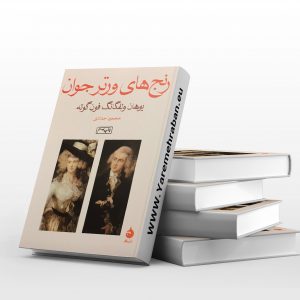



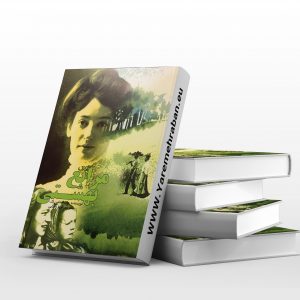

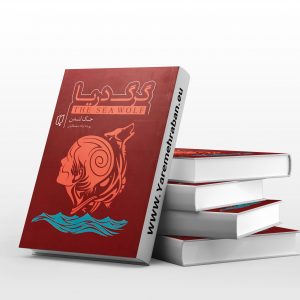

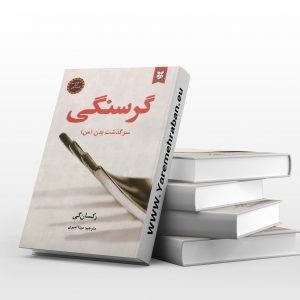
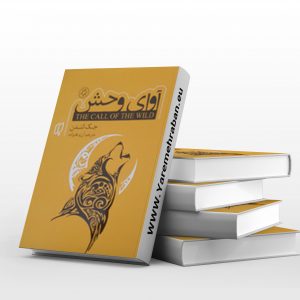


Reviews
There are no reviews yet.